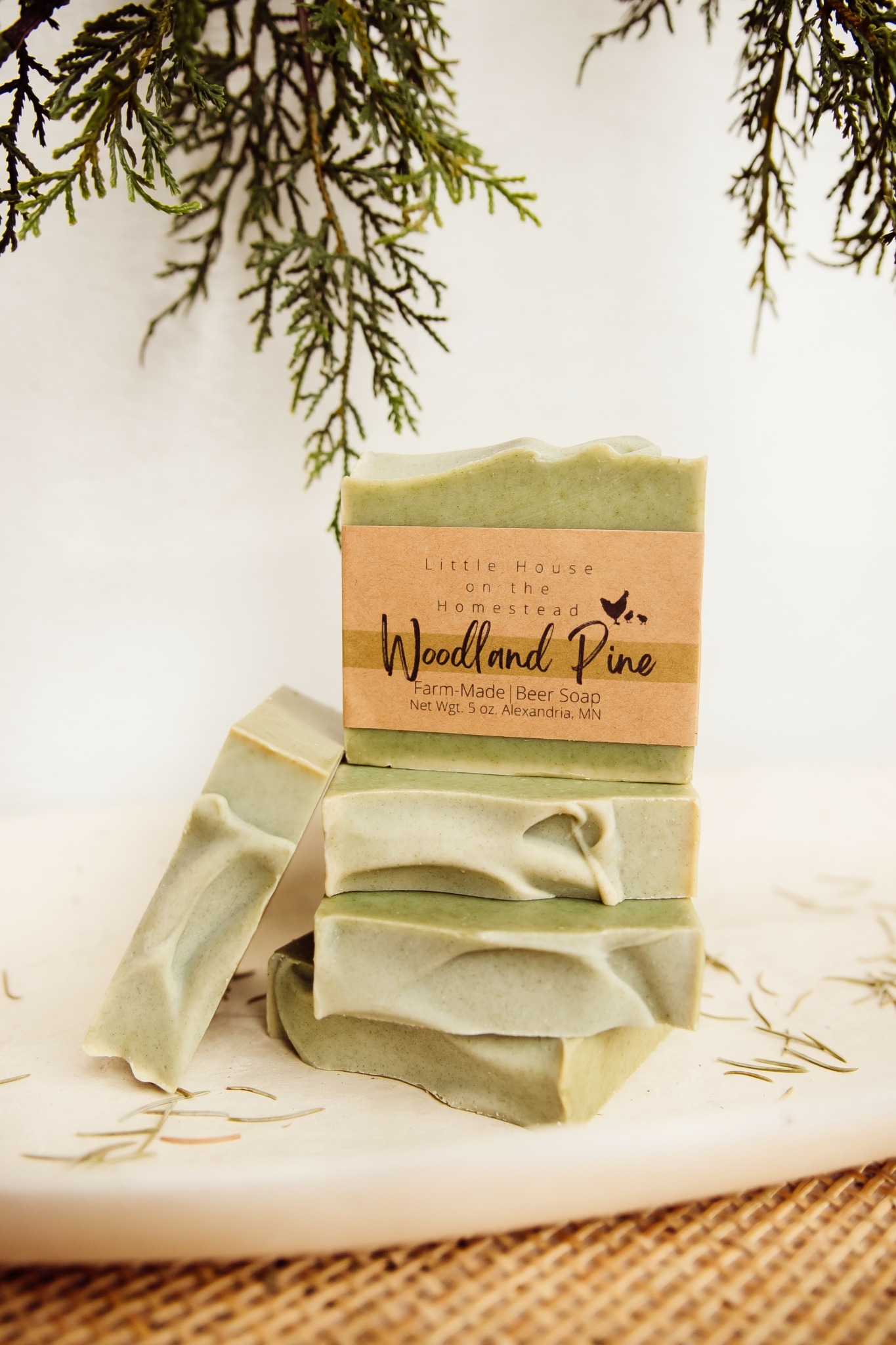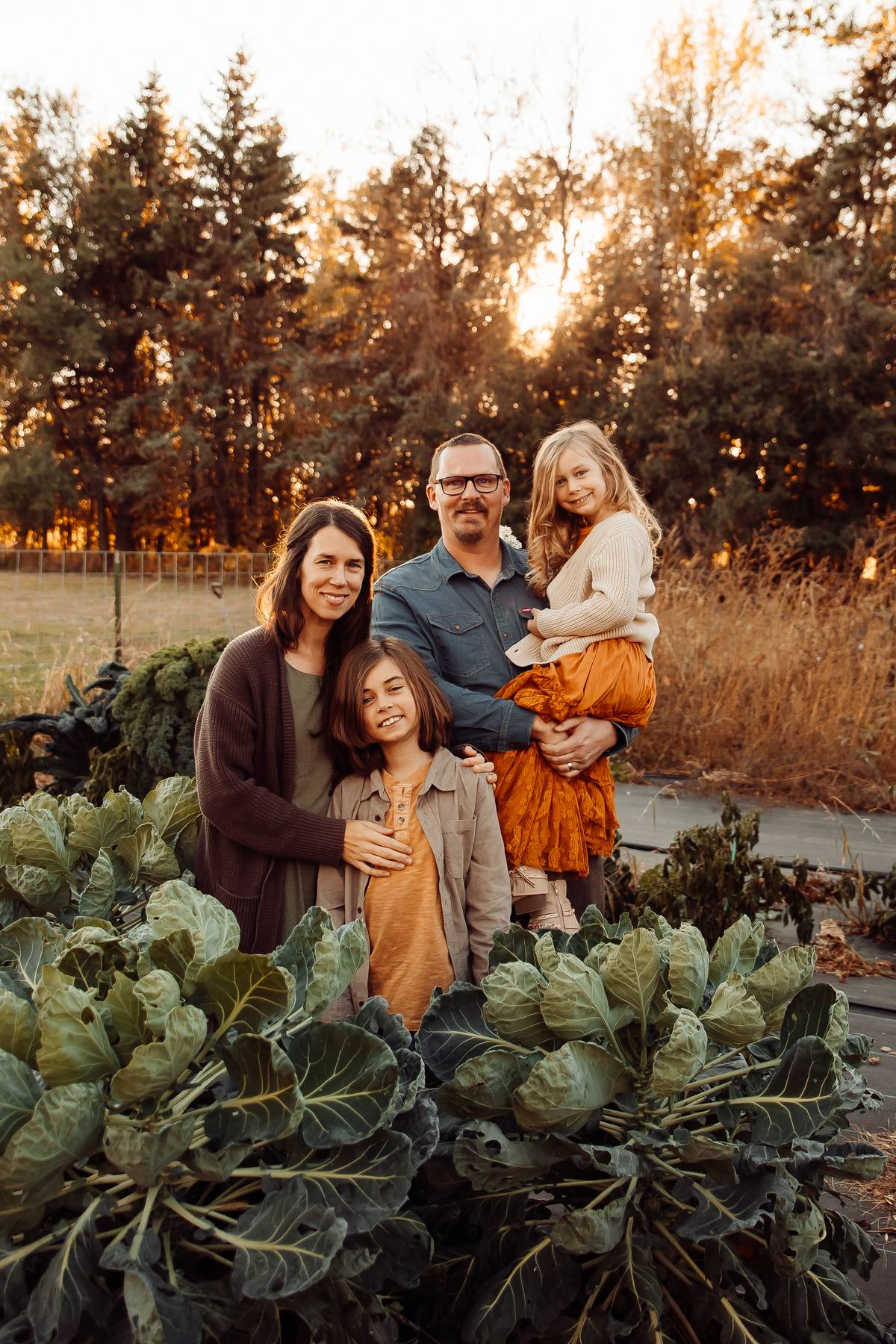We were lucky to catch up with Steven & Shelly Scott recently and have shared our conversation below.
Steven & Shelly, appreciate you joining us today. How did you come up with the idea for your business?
The idea for our business was born out of frustration, determination, and hope. In 2015, my son Sawyer was struggling with severe eczema that went un-diagnosed by several providers. His skin was constantly irritated, and after countless doctor visits, we were left with only temporary solutions—prescriptions and creams that didn’t seem to help in the long run. I knew in my heart there had to be a better way. Growing up, I’d heard stories of my grandmother making old-fashioned soap from scratch, using simple ingredients straight from her garden. Her resourcefulness inspired me to take matters into my own hands and get in the garden to grow healthy ingredients.
One day, after tossing out all the conventional creams, I decided to create my own soap using wholesome, natural ingredients—no synthetic fragrances, colors, or harsh chemicals. I wanted something gentle, nourishing, and truly effective. Within a few weeks of Sawyer using my handmade soap, his skin started to heal. The transformation was remarkable, God nudged to pursue it and I knew we were onto something exciting.
The logic behind starting this business was simple: I realized that so many families, like mine, needed access to non-toxic, effective skincare options. I didn’t see many products that combined handmade artistry with carefully grown botanicals from a farm. My unique approach—harvesting herbs and botanicals from my own garden to use in my soaps—made me confident that I could offer something special.
What excited me most was the idea of merging my love for gardening with creating products that could help people. I wasn’t just making soap; I was cultivating ingredients, pouring care into every bar, and offering peace of mind to people who, like me, wanted truly clean products they could trust without question. Knowing that I could build a community around self-care, simplicity, and natural living made it clear that this was a worthwhile endeavor.

Awesome – so before we get into the rest of our questions, can you briefly introduce yourself to our readers.
Hi, I’m Shelly, and together with my husband Steven, we are the founders of Little House on the Homestead and creator of farm-crafted skincare and haircare products designed for those who crave clean, non-toxic alternatives. Our journey into this business was deeply personal. It began as a mom’s mission to help my son, Sawyer, who suffered from persistent eczema that went misdiagnosed for far too long. After exhausting conventional remedies and finding no lasting solution, I turned to my Bohemian roots—those stubborn, self-sufficient values instilled in me by my grandmother, who always grew her own ingredients and made things from scratch.
That’s where the spark for our handmade business came from: a combination of frustration, a fierce desire to help my family, and a deep respect for old-world craftsmanship. We started with soap, but today, we offer so much more. Our products include seasonal artisan soaps, whipped tallow balm, and curated subscription boxes like The Skincare Farm Box, The Botanical Soap Club, and the upcoming Haircare Collective. Each product is made with botanicals and herbs grown in our own garden—ingredients carefully chosen to be safe, nourishing, and effective.
What sets us apart is our holistic approach. We don’t just sell products; we cultivate the ingredients, hand-stamp every box, and write personal notes for each order for our customers. Our subscribers become part of a community that celebrates simplicity, wellness, and self-care. Whether it’s a mom looking for gentle skincare for her child, someone with sensitive skin, or someone wanting eco-friendly, zero-waste haircare, we provide peace of mind through high-quality, thoughtfully crafted goods.
I’m most proud of how far we’ve come—from a simple soap making to do better, to a thriving small business. Every time someone writes to tell us how our products helped their skin or made them feel special, it reminds me why I started. It’s more than just soap or balm—it’s about empowering people to take better care of themselves without compromise.
For those just discovering us, here’s what I want you to know: we’re a small family-run business built on faith, persistence, and a passion for creating clean, seasonal skincare and haircare. We believe in handcrafting products that are luxurious, effective, and free from harmful chemicals. And we do it all with love—right from our farm to your hands.

Okay – so how did you figure out the manufacturing part? Did you have prior experience?
Yes, we manufacture all of our own curated products, and every bar of soap, jar of balm, and bottle of lotion is made by hand in our home studio. My journey into manufacturing began years ago when I took a local soapmaking class to learn the basics. What started as a simple project to help my son Sawyer with his eczema quickly blossomed into a full-fledged business.
Back then, we focused on the essentials—soap and lotion—things I knew my family needed most. Over time, we expanded our product line to include seasonal skincare, whipped tallow balms, and now, pH-balanced shampoo and conditioner bars, all crafted with herbs and botanicals we grow ourselves.
We don’t outsource any of our manufacturing. Instead, my husband Steven and I do everything ourselves—just the two of us. People often assume we’re a large-scale operation, but we’re really just a small, passionate team making everything in small batches.
Along the way, we’ve had our share of lessons—some good and some hard:
Order bulk supplies months in advance. Early on, we ran out of key ingredients too close to deadlines, and let me tell you, that’s a level of stress I wouldn’t wish on anyone! Now, we always plan ahead.
Stick to a solid production schedule. Manufacturing consistency is critical. We’ve learned that having a structured process ensures that every batch meets our high standards.
Accept help when offered. Since we don’t have employees, help from family and friends has been vital. We couldn’t do it all on our own, and learning to say “yes” to help was a game-changer.
Say no more often. Overcommitting can hurt more than it helps. We’ve learned that protecting our energy and focus leads to better results in the long run.
On the flip side, we’ve had several successes in our manufacturing process:
Investing in equipment. Early on, we were hand-pouring every small batch, which was exhausting. Upgrading to equipment that helps us pour larger batches and melt raw ingredients more efficiently has been a game-changer.
Building local partnerships. We cherish our partnerships with local suppliers for raw ingredients. These relationships not only help us source high-quality ingredients but also support our local economy.
Over-communicating to meet deadlines. When you’re a small team, clear communication is everything. We’ve learned that staying ahead of the curve with orders and timelines keeps us on track.
In the end, manufacturing isn’t just about making products—it’s about staying true to our values, being resourceful, and continuously improving. It’s a hands-on process filled with love, intention, and a whole lot of learning. We haven’t always gotten it right, but thats now you learn and grow!

Can you talk to us about how you funded your business?
When we started our business, we didn’t take out any loans or borrow money. Instead, we chose to bootstrap our way through, relying on the income from our day jobs. My husband, Steven, was a music teacher, and I worked as a medical sign language interpreter. Every spare dollar we had went toward slowly building the foundation of our business. We bought equipment piece by piece, paid for liability insurance, and invested in raw ingredients—at a much higher price back then because we couldn’t afford to order in bulk like we do now.
It wasn’t easy, but we were determined to grow without going into debt. From the beginning, we committed to re-investing every bit of profit back into the business. Whether it was upgrading equipment, expanding our product line, or purchasing larger quantities of ingredients to save on costs, every decision was made with the future in mind. It taught us patience, resourcefulness, and the importance of running a sustainable business and is what helped my husband transition from teaching to running our small business and managing our farm and me cutting way back on my day job!
This approach gave us a deep appreciation for every step of the process and kept us grounded in our values. It may have taken us longer to get to where we are today, but knew it was all in God’s timing. Knowing that we built this business from the ground up, with our own hands and hard-earned money, makes every success feel that much more rewarding.
Contact Info:
- Website: https://shoplittlehouseonthehomestead.com/
- Instagram: https://www.instagram.com/littlehouseonthehomesteadmn/
- Facebook: https://www.facebook.com/littlehouseonthehomesteadmn/
- Youtube: https://www.youtube.com/@littlehouseonthehomesteadmn



Image Credits
Sam Squared Photography


